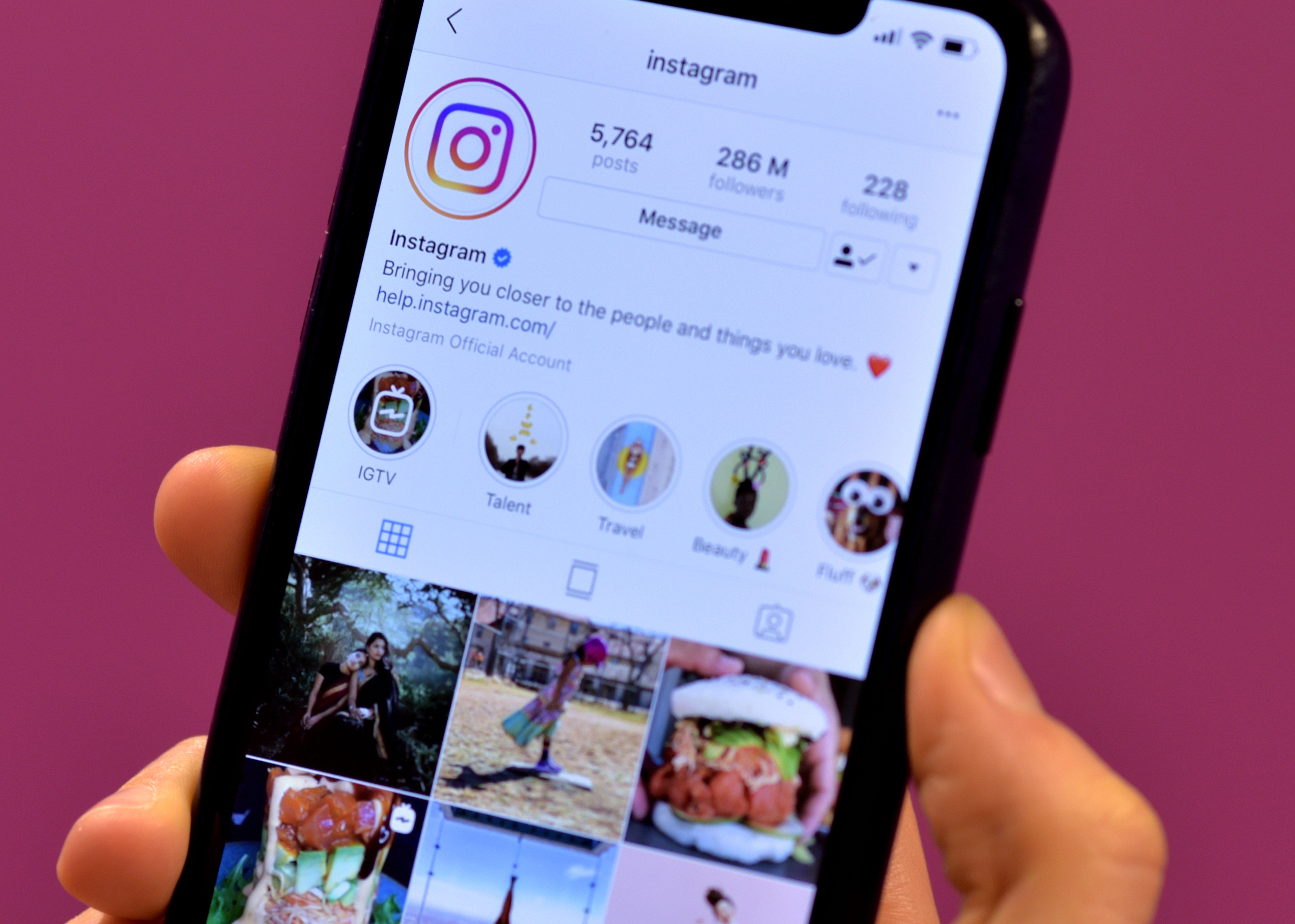Instagram ‘failing to protect women in the public eye from misogynist abuse’
A new study from the Centre for Countering Digital Hate said the social media giant needed to do more to stop abuse via direct messaging.

Your support helps us to tell the story
From reproductive rights to climate change to Big Tech, The Independent is on the ground when the story is developing. Whether it's investigating the financials of Elon Musk's pro-Trump PAC or producing our latest documentary, 'The A Word', which shines a light on the American women fighting for reproductive rights, we know how important it is to parse out the facts from the messaging.
At such a critical moment in US history, we need reporters on the ground. Your donation allows us to keep sending journalists to speak to both sides of the story.
The Independent is trusted by Americans across the entire political spectrum. And unlike many other quality news outlets, we choose not to lock Americans out of our reporting and analysis with paywalls. We believe quality journalism should be available to everyone, paid for by those who can afford it.
Your support makes all the difference.Instagram is not doing enough to protect women in the public eye from misogynistic abuse online, a new report has claimed.
A study by the Centre for Countering Digital Hate (CCDH), which included input from several women in the public eye such as actor Amber Heard and broadcaster Rachel Riley, suggests that Instagram was failing to remove accounts that sent abuse to women, in violation of the site’s rules.
The report saw five prominent women give access to their direct messages (DMs) on Instagram to the online safety group, which claimed that it had found an “epidemic of misogynist abuse” that was being “ignored” by the platform as 90% of the offending accounts remained active after sending abusive content and being reported.
As well as Ms Heard and Ms Riley, Jamie Klingler, co-founder of Reclaim These Streets; journalist and mental health campaigner Bryony Gordon and Sharan Dhaliwal, founder of UK South Asian culture magazine Burnt Roti, took part in the study.
It said that threats of violence and abuse were being sent to women in voice notes as well as in text form and as images, with the CCDH suggesting that Instagram’s safety features were ineffective at blocking out such content.
The CCDH said it was concerned that the sense of a lack of consequences for those sending abuse could embolden some to go on to send further abuse.
There is an epidemic of misogynist abuse taking place in women’s DMs. Meta and Instagram must put the rights of women before profit
In response, Instagram said the CCDH had wrongly concluded that just because accounts had remained active it did not mean the platform had not taken action and that accounts that sent messages which break the site’s rules are given a strike and blocked from sending DMs for a set period of time, with stronger punishments handed out if they continue to send abusive messages.
The social media giant said it had a number of its safety tools in place that can be used to protect against the type of content in question, including features that automatically block accounts that do not follow a user from directly contacting them via DM, as well as the Hidden Words tool which filters out messages to hide those containing offensive or abusive terms and emojis.
But CCDH chief executive Imran Ahmed said the current processes were not enough and Instagram needed to do more to protect women.
“Digital spaces provide increasingly important ways to maintain relationships, communicate and build personal brands. For women, however, the cost of admission to social media is misogynist abuse and threats sent by abusers with impunity,” he said.
“Instagram has chosen to side with abusers by negligently creating a culture in which abusers expect no consequences – denying women dignity and their ability to use digital spaces without harassment.
“There is an epidemic of misogynist abuse taking place in women’s DMs. Meta and Instagram must put the rights of women before profit.”
In a statement, Cindy Southworth, Meta’s head of women’s safety, said: “While we disagree with many of the CCDH’s conclusions, we do agree that the harassment of women is unacceptable.
“That’s why we don’t allow gender-based hate or any threat of sexual violence, and last year we announced stronger protections for female public figures.
“Messages from people you don’t follow go to a separate request inbox where you can either block or report the sender, or you can turn off message requests altogether.
“Calls from people you don’t know only go through if you accept their message request and we offer a way to filter abusive messages so you never have to see them.”